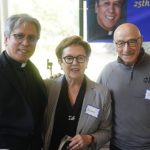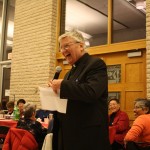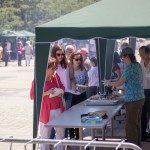In a way we can hear today’s parable as a ‘give an accounting of your self. What have you done with the gifts God gave you?
Let’s start with ourselves as members of the human species.
Think on these things;
God our master has left us with the earth, not to do with it what we want but to care for it even as we live off of its abundant riches.
God created the land to support living things: What will happen when God returns to find so much land strip-mined, strip-cleared, eroded, and burdened with toxic waste?
God created the waters to support all living things: What will happen when God returns to find the oceans and rivers polluted with our garbage and chemical by-products?
God created the air to support all living things: What will happen when God returns to find polluting smog and holes in the ozone?
God created plants and animals to live on this wonderful earth and revel in its beauty: What will happen when God returns to find so many of them driven to extinction by our destructive practices?
What answer can we give? What excuses can we make?
Another thing to think about…God graced us with the gift of our Christian faith. St. Paul urges us to grow to grow in our faith to a full maturity in Christ
Years ago Pope John 23rd challenged us with these word’ we are not on earth to guard a museum but to cultivate a flourishing garden of life. This challenge is still vital. At a moment when many good people are preoccupied with keeping the deposit of our faith secure, faithful to the past, this is the way we always thought, Pope John called us to a new venture of openness and dialog with the world in which we live. To use Pope John’s own image, ‘open the windows and let in the fresh air.
In Pope Francis choice of Bishops and Cardinals he’s moved beyond the old practice of choosing places like Paris or Milan, London or New York. He’s gone to the frontiers, choosing bishops who have the smell of their sheep. Pope Francis chooses pastors over administrators.
The Pope promotes, what he call a culture of encounter, he talks with and listens respectfully to people who think differently from himself, so he’s upset many people with his opinions of the LGBTO community and his thoughts on civil unions.
A Jesuit author wrote an article about 80 year old Bob Dylan’s recent album , Rough and Roudy Ways. This Jesuit sees Dylan as a deeply spiritual person whose musical message encourages us to ‘stop spending our efforts on earning God’s, bur to spend our efforts on receiving God’s love.
Something to think about…am I trying to earn God’s love or am I willing to accept God’s love? A love we celebrate right here, right now – this is my body given for you, this is my blood poured out for you – receive!
 Founded by St. Paul of the Cross, every Passionist takes a special vow to spend his or her energies in promoting remembrance of the sufferings of Jesus, the memory of the Cross, and reflection of the meaning of the Cross for the world.
Founded by St. Paul of the Cross, every Passionist takes a special vow to spend his or her energies in promoting remembrance of the sufferings of Jesus, the memory of the Cross, and reflection of the meaning of the Cross for the world.




